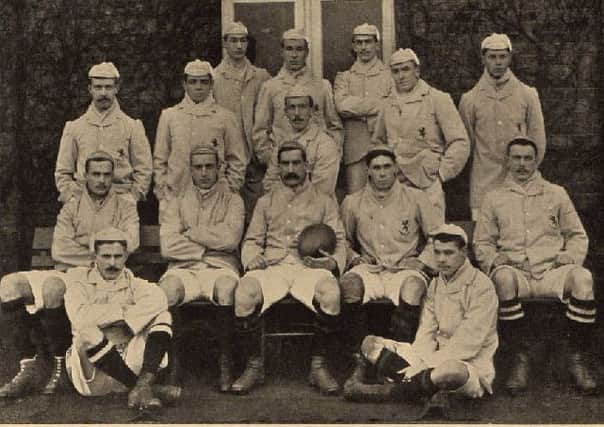The extraordinary tales of John Argentine Campbell


He died in the First World War and he did so in much the same way as he had lived, at full pelt. He was a gifted sportsman, a world class polo player with a 9-goal handicap, a Cambridge Blue at athletics, cricket and rugby and a Scottish international. In addition he played cricket for his home country of Argentina, playing against England in 1912. He was a military hero and was described by those who knew him as the very best of men.
Campbell had volunteered to join the fight from his home in Argentina, indeed since hostilities started in 1914 he had quit playing polo and wrote to a friend to explain why. Dear Lewis,
Advertisement
Hide AdAdvertisement
Hide AdI have just heard that war has been declared between England and Germany. Although possibly it may seem foolish, I would prefer not to play public polo while our people are at it over there; so I hope you will allow me to stand out. I feel that if one can go in for games at this time we shouldn’t be here but we should be on the way to the other side.
Yours,
JA Campbell.
Born in Argentina, like many colonial kids Campbell was shipped back to the motherland for schooling. He attended Fettes College in Edinburgh, became head boy and captained the school rugby team before progressing to Cambridge University where he won three rugby blues and captained them to a handsome win in the 1899 Varsity match.
He won his one Test cap for Scotland one year later in a draw with Ireland in Dublin. Upon leaving university he taught briefly at Loretto School before heading home to South America.
Upon the outbreak of war Campbell joined the army, an officer in the Inniskilling Dragoons “the Skins”, a famous cavalry regiment with numerous battle honours to their name.
At one point during the war he was given leave to return to Argentina and when he and his wife returned to the UK the ship they were on, the SS Drina, was torpedoed by a German U-boat three miles off the UK shore; a legitimate target, the Germans claimed, since it was carrying plentiful supplies of beef and coffee. All the passengers made it safely into the lifeboats although several of the crew lost their lives.
When he made it back to France, the “Skins” were involved in a British offensive with the support of some tanks which did not turn up. One detachment of the cavalry regiment pressed on with sabres drawn, the others seeing the carnage wrought by German machine gunners, held back. The regiment lost 102 men and 150 horses in that one action on 1 December, 1917.
Campbell was badly wounded and he died of his injuries one day later in a German military hospital. John Argentine Campbell is buried in a military grave at Honnechy, France, close to the Belgian border.
His grandson, also John Argentine Campbell, still runs the family estates in Argentina.
Campbell and former Oxford University captain Cecil Baker, another who fell in the “Great War”, will both be remembered at this year’s Varsity Match which takes place Thursday, 7 December.